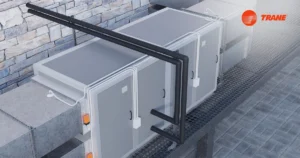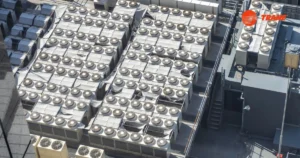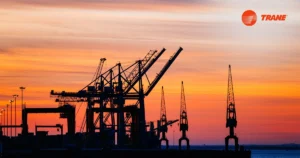Saudi Arabia’s rapid economic growth has created a vibrant marketplace where logistics, retail, pharmaceuticals, and agriculture all intersect. In such a dynamic environment, maintaining the integrity of perishable and sensitive goods is not just a challenge — it is a strategic necessity. This is where Refrigerated Containers have become indispensable, offering businesses the ability to preserve quality and reliability even under the Gulf’s extreme climate conditions.
Saudi Arabia’s Climate and Its Challenges
Saudi Arabia is no stranger to intense heat, with summer temperatures regularly soaring above 45°C. For industries that handle food, medicines, or temperature-sensitive raw materials, this climate poses serious risks. Without proper systems in place, entire shipments can be compromised, leading to financial losses and reputational damage. Refrigerated solutions provide the essential buffer businesses need to overcome these obstacles, ensuring that supply chains continue operating smoothly year-round.
Why Containers Are a Flexible Solution
Unlike fixed cold rooms or permanent installations, Refrigerated Containers are highly versatile. They can be deployed at ports, warehouses, farms, or retail distribution hubs, providing reliable cooling exactly where it is needed. This flexibility allows businesses to respond quickly to shifting demands, seasonal pressures, or emergency requirements. Whether for short-term events or long-term projects, these portable systems provide a practical answer to Saudi Arabia’s growing demand for resilient supply chains.
Applications in Food Security
Food security is a national priority, supported by Saudi Arabia’s investments in local agriculture and imports. Perishable goods like fruits, vegetables, dairy, and meat require continuous refrigeration during storage and transit. Refrigerated units make it possible for farmers, importers, and distributors to maintain freshness from harvest to shelf, reducing waste and ensuring consumers receive products of the highest quality. This directly supports the nation’s strategy of sustainable food management.
Pharmaceutical and Healthcare Demands
The pharmaceutical sector is equally reliant on precise storage. Vaccines, medicines, and laboratory samples often require tightly controlled conditions. Even brief fluctuations in temperature can reduce their efficacy. By providing mobile and dependable cold environments, containers allow hospitals, pharmacies, and distributors to safeguard supplies and remain compliant with international standards. This reliability strengthens Saudi Arabia’s healthcare sector and its ability to serve a growing population.
Strengthening Logistics and Trade
As Saudi Arabia positions itself as a global logistics hub, the need for efficient and flexible infrastructure has never been higher. Ports and distribution centers rely on cold chain solutions to handle imports and exports safely. Portable containers are ideal for managing overflow during peak demand periods or supporting expansion into new trade routes. They help businesses minimize risk while maximizing efficiency, reinforcing Saudi Arabia’s reputation as a trusted trade partner.
Integration with Modern Technology
Today’s refrigerated units are not just insulated boxes — they are equipped with smart technologies that enable real-time monitoring and control. Sensors allow operators to track temperature and humidity levels, while predictive maintenance systems reduce the risk of equipment failure. These innovations give businesses confidence that their assets are safe, even when operations span across multiple facilities or regions.
Cost-Effective and Scalable Benefits
Another advantage of portable systems is scalability. Businesses can increase or reduce capacity according to seasonal or project-specific needs. This prevents unnecessary investment in permanent infrastructure while still guaranteeing reliable cooling. For companies looking to manage costs without compromising quality, refrigerated units offer an optimal balance of flexibility and performance.
Real-World Examples in Saudi Arabia
Across Saudi Arabia, industries are already embracing the benefits of refrigerated systems:
- Agriculture: Local farms use containers to store produce during harvest, ensuring freshness until distribution.
- Retail: Supermarkets deploy extra storage during Ramadan and other peak demand periods.
- Healthcare: Hospitals rely on mobile solutions to secure medicines and vaccines during expansion projects.
- Logistics: Ports and freight operators integrate containers to manage increased trade volumes efficiently.
These applications highlight how adaptable solutions are central to Saudi Arabia’s economic resilience.
Closing Thought
Saudi Arabia’s businesses cannot afford to take risks with perishable or sensitive goods. Reliable storage is essential to maintaining trust, competitiveness, and long-term growth. With Trane Saudi Arabia’s advanced expertise, organizations gain access to cutting-edge systems and full-service support that align with both commercial and national goals. By leveraging proven innovations in Warehouse Cooling, companies secure the confidence that their supply chains will remain efficient and resilient under any conditions.




